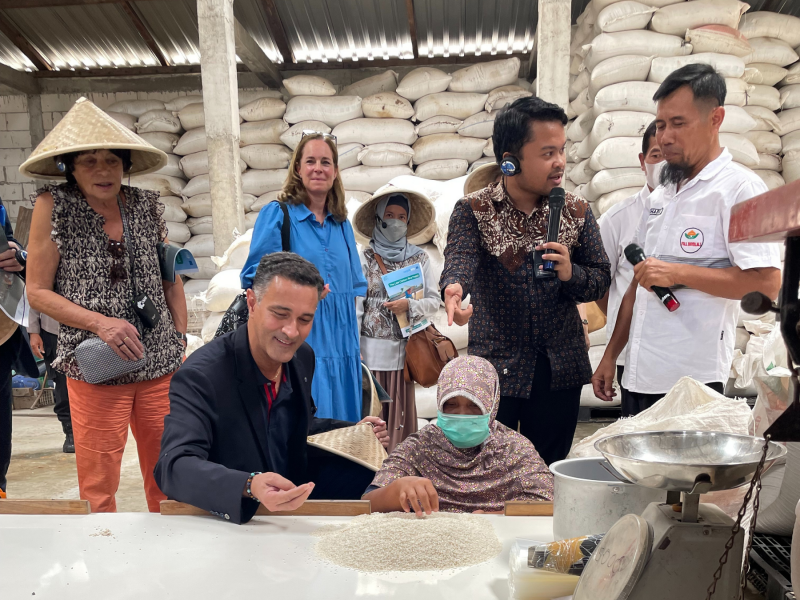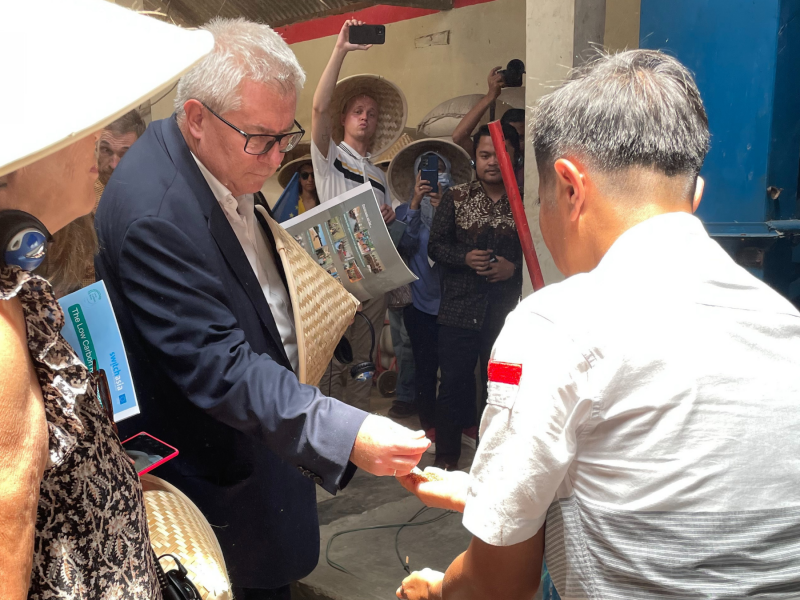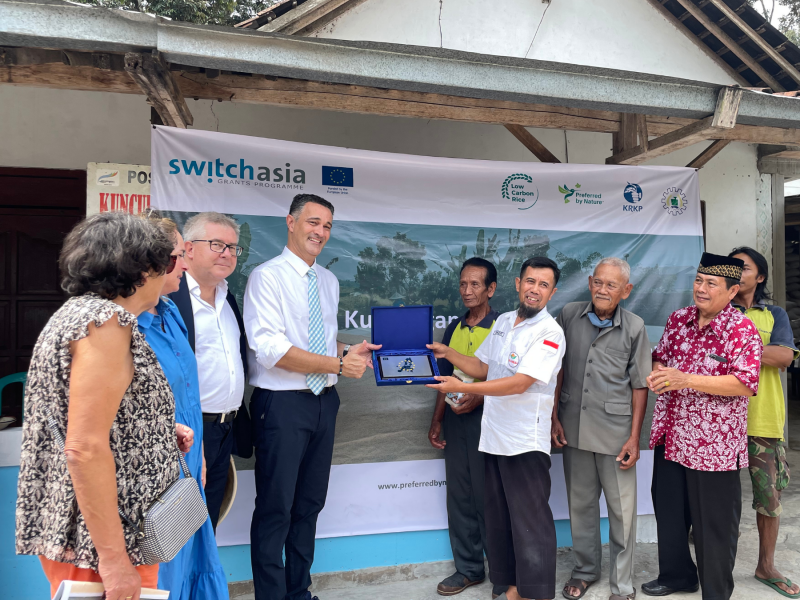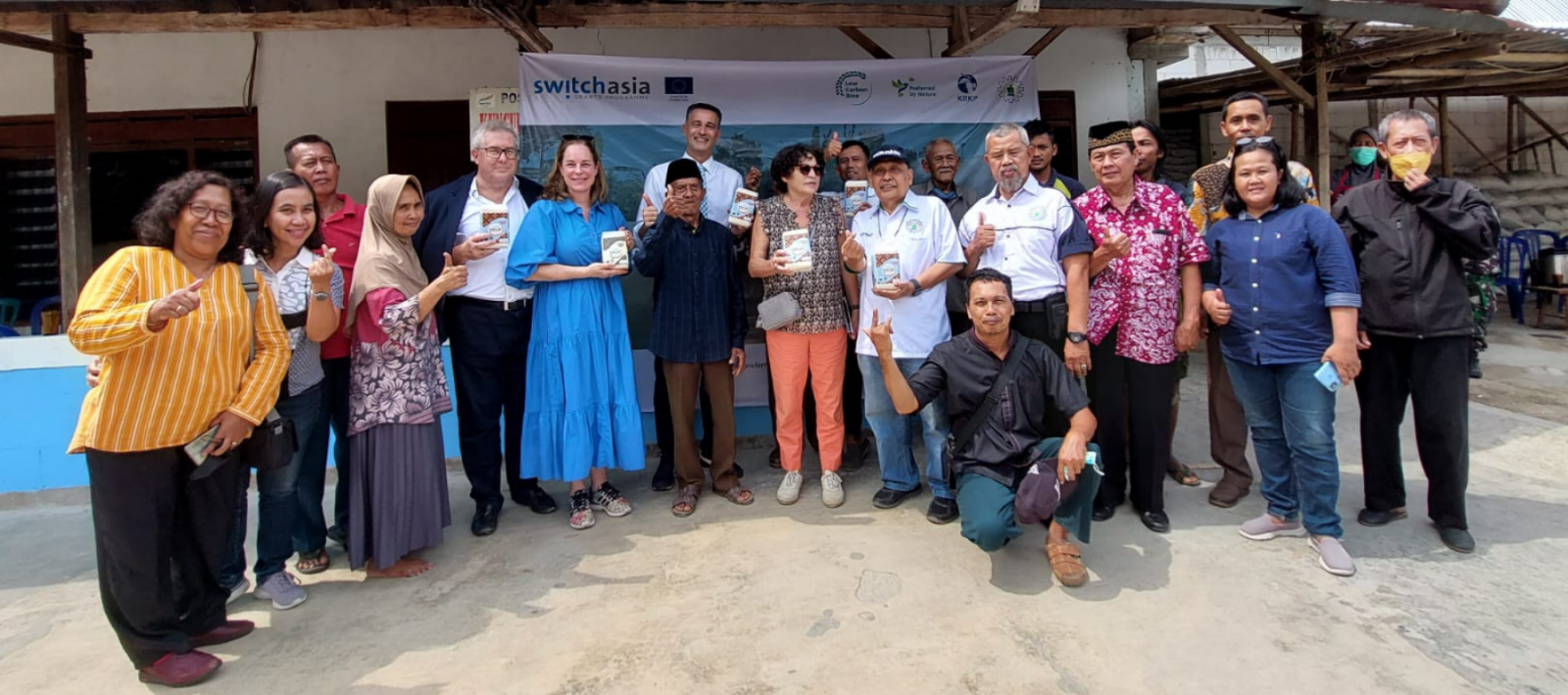
Indonesia is the third largest rice producer globally. Unfortunately, rice producers are among the most vulnerable to the impact of climate change: drought, floods, high temperatures, and rising sea levels are direct threats to their livelihoods. Some of the main challenges for rice producers – or rather rice millers – is their lack of access to financing for improved technology, the lack of awareness and technical knowledge on sustainable rice production methods, the inability to ensure higher prices for sustainable rice despite government control over prices and exports, and underdeveloped business models for new income streams from verified sustainable rice, sale of rice straw, and carbon credits from emissions avoidance/reduction.
Other main challenges in terms of climate change include: 20 million ha of rice fields are prone to floods and another 20 million ha are susceptible to drought. Rice cultivation uses 40% of the world’s freshwater, using on average 1432 litres of water to produce 1kg of rice in an irrigated lowland production system (the type of system used by most rice farmers in Java, Indonesia). This reduces freshwater availability for human consumption and other uses, contributing to increasing frequency and severity of water conflicts. Common practices for rice cultivation, such as overuse of agrochemicals, further degrades water quality, ecosystem integrity, and human health.
The newly launched EU funded SWITCH-Asia Low Carbon Rice project implemented in Indonesia aims to reduce the climate impact of rice through the adoption of sustainable rice production (non- farm level).



On 20-22 September 2022, a group of four Members of the European Parliament (MEPs) from the Committee on Development visited Indonesia to review EU-Indonesia relations and development support. One of the field visits was conducted in the Boyolali district where the Low Carbon Rice team, including representatives from Preferred by Nature, PERPADI, and People’s Coalition for Food Sovereignty (KRKP), welcomed MEPs Stéphane Bijoux, Hildegard Bentele, Michéle Rivasi, and Ryszard Czarnecki.
Delegates had the opportunity to visit Mr. Muhadi's small rice mill and hold a meeting with the Boyolali District Government and Mr Mohammad Said Hidayat, District Head of Boyolali.
Mr. Muhadi, the owner of the small rice mill said he felt honoured to meet and convey his aspirations regarding the green transition of his rice mill to the EU MEPs.
Leader of the four-member delegation, Stéphane Bijoux expressed his support and and optimism for the Low Carbon Rice project by stating that what he had seen during his visit in Boyolali had become a concrete manifestation of joint efforts between Indonesia and Europe to present a solution on today's challenges, particularly regarding climate change and commitments to a green transition.
Mohammad Said Hidayat, District Head of Boyolali also praised the project and expressed his gratitude for the attention of the EU MEPs towards the sustainability and welfare of farmers and rice millers in Boyolali district, in Indonesia.
Sucipto Saputro, Low Carbon Rice Project Coordinator from Preferred by Nature expressed his optimism that this visit would strengthen the support and collaboration for the Low Carbon Rice project throughout the implementation period, from all the relevant stakeholders, especially from the Boyolali district government.
Sutarto Alimoeso, Chairman of PERPADI, emphasised how the project has been able to strengthen the European-Indonesian collaboration, especially in the rice milling sector.
Ayip Said Abdullah, National Coordinator of KRKP, also expressed his gratitude for the strong commitment of the Boyolali district government in developing the welfare of farmers and rice millers. Through the Low Carbon Rice project, KRKP is committed to bringing the spirit in Boyolali to other districts and at the national level.

Photo credits: SWITCH-Asia Low Carbon Rice


